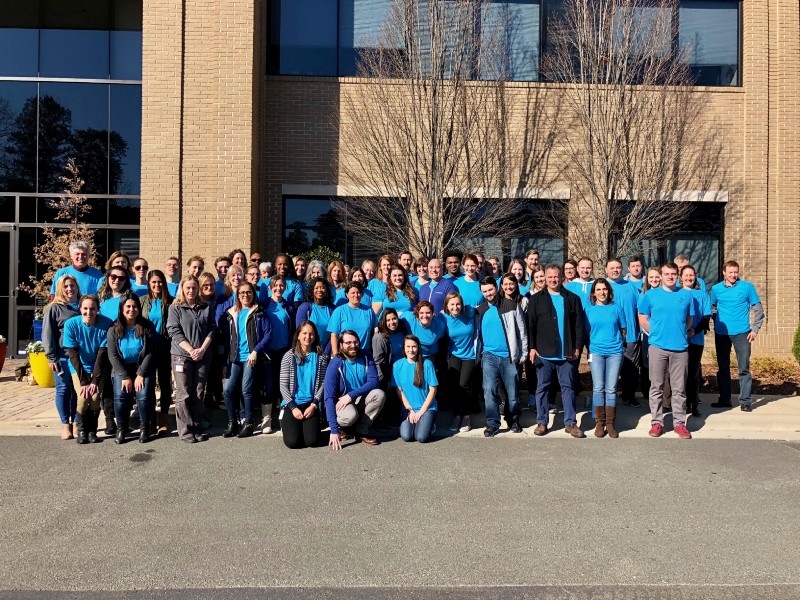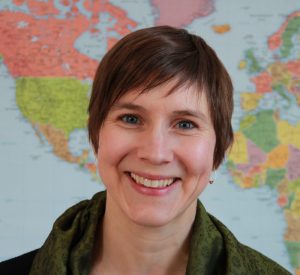A version of this interview was originally published on B The Change (bthechange.com).
Let’s say your employees work 40-hour weeks and earn a decent salary and good benefits, including healthcare coverage. What happens if one of your employees, who has always been a strong performer and is dedicated to achieving the company’s mission, has an elderly mother who becomes ill, and your employee is tapped to become a caregiver? He wants to stay at the company, but he can longer work more than part-time hours. The loss of the healthcare benefits would cause him to seek other solutions and other employment.
Or, let’s say you have strong team leads who give their all, but are regularly burning out from the day-in, day-out demands of the fast-paced workforce. You know you’re at risk of losing employees because they are not able to recover and stay fully engaged.
These are challenges that two B Corps recently addressed. Preserve, a sustainable consumer goods company with a small team and no planned major hiring in the near future, realized an opportunity to increase staff diversity in the short term was to increase flexibility for their team. The company did so by expanding its healthcare coverage to include part-time workers.
“Allowing people to stay on health insurance while reducing their hours to react to caregiving obligations or go back to school seemed like a good, impactful, realistic step,” says Deana Becker, director of stakeholder operations at Preserve. “We also know that by offering insurance at a lower number of hours of work we make Preserve a more appealing employer to people in a wider range of life situations.”
Participate, a K-12 education program provider, increased PTO and sick leave, and added a policy allowing employees to use sick leave for doctor appointments and to care for immediate sick children, spouses, or parents. “We encourage employees to pursue their professional and personal passions,” says Ranya Hahn, director of human resources at Participate. “Employees use time away from work for personal interests and rest and then return ready to focus on our mission and goals. In terms of flexibility, we trust our employees to determine the best schedules for themselves, their teams and their work.”

Participate’s employees felt that work schedule flexibility was of high value, and the company made changes to address the request.
Both Preserve and Participate worked through the first year of the B Corp Inclusive Economy Challenge. The Inclusive Economy Challenge is a call to action for the community of Certified B Corporations to improve our collective impact and move toward an inclusive economy. A total of 175 companies participated in the Challenge’s pilot year, collectively achieving 298 measurable inclusion goals. Companies participating in the Challenge choose three or more goals from the Inclusive Economy Metric Set, a part of the B Impact Assessment companies take to become Certified B Corps, to improve on. The Inclusive Economy Metric Set offers concrete metrics on themes like supporting vulnerable workers, climate change mitigation, supplier screening, and corporate governance.
We asked Becker and Hahn for more information about their programs, inspiration, and the value of flexible work schedules to their companies.
What inspired you to introduce more work schedule flexibility? What was the process to make them happen?

Deana Becker of Preserve.
Deana Becker: In taking on the Inclusive Economy Challenge, we discussed balancing how we could be most impactful with what we could realistically take on. While the decision to take this on was weighty, getting it done was straightforward. We did the financial calculations to assess the potential impact, and then we went about rewriting our handbook and policy documents, which were then approved by our leadership team.
Our hope is that we will increase flexibility for our current team, allowing people to stay on even as their life situations may change. We also open ourselves up to a wider range of future candidates.
Ranya Hahn: Our prior PTO plan allowed for an increase in PTO after five years of service. While we have many employees who have been with the company for more than five years, we wanted to recognize and appreciate employees with additional leave sooner. The U.S. Bureau of Labor Statistics reports the average length of employment in the U.S. is 2.2 years, so we chose to expand our policy to recognize employees with more than two years of service with additional PTO.
When I started with the company in June 2016, I met with small groups of employees
and asked them what was important to them. Flexibility was a priority, for them to be better able to care for young children and aging parents.
We are continuing to look at other ways we can support employees at work and home. We have increased the maternity leave benefits to 12 weeks’ full pay and added four weeks of paid paternity leave. We also closed the office between Christmas and New Year’s Day in 2016. Initially, we approached it with the thought it would be a nice perk over the holidays. The actual benefit exceeded what we initially predicted. Employees returned to work renewed and recharged, not overwhelmed by what they missed or the number of unread emails in their inbox. Because everyone else was on break, it was a much different experience and great way for everyone to start a new year.
Why was the Inclusive Economy Challenge important for your company to be a part of?

Ranya Hahn of Participate.
DB: We were thrilled to be part of the Inclusive Economy Challenge because, like many other teams, we get caught in our day-to-day projects and often don’t pause to deliberately build policies that work toward an inclusive economy—even though we all agree that it’s important. Being part of this challenge helped us take that pause, and we’re a lot better for it. Our other goals from last year were to add diversity and inclusion trainings for our staff and formalize donation programs to direct them to underserved communities.. We’re proud that we achieved all three of our goals. It was very motivating to know we w
ere part of the greater B Corp community working toward inclusive economy goals.
RH: Our commitment to an inclusive economy aligns with our company’s mission for ensuring equitable and inclusive access to quality education. Participate values the role businesses play in being a force for changing the world for the better. Our business practices support and encourage our employees. In this coming year, we have targeted increasing the diversity of our intern hiring pool and, thus, workforce; developing diversity and inclusion training for all employees; and reviewing our pay structure to be sure we are paying employees fairly based on their knowledge, skills, experience, performance, contribution and impact on our organization.





